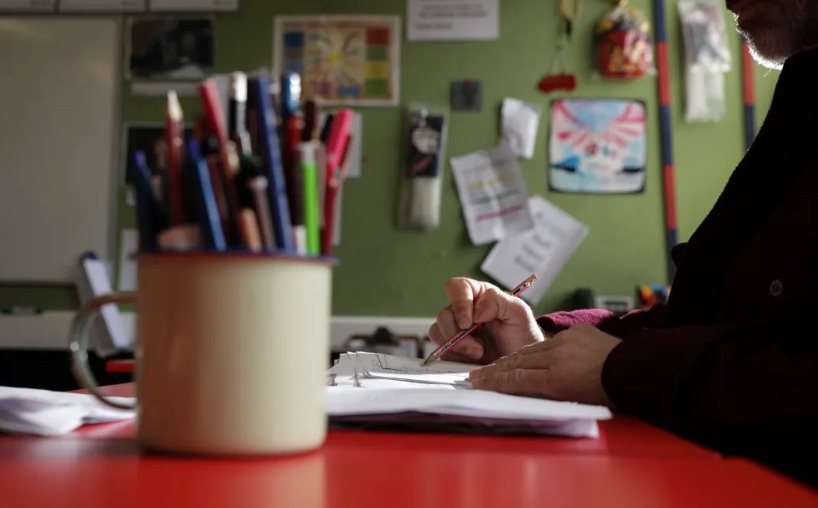
Primary schools are starting the year with a new maths curriculum and it's a lot harder than the old one.
Testing shows 42 percent of children in their final year of primary school were doing maths at the level expected in the old curriculum, but only 20 percent would meet the new curriculum's expectations.
Plateau School principal Nigel Frater said pupils, and their teachers, could lose heart if they could not reach the expected level for their age group.
"We do like the fact that the goal posts are very clear for us in terms of teaching. But for example, understanding of equivalent fractions at a Year 2 to 3 level, I think kids at that age are still really trying to get to grips with what a concept of a fraction is at that age," he said.
"There's a bit of a concern that those kids could get behind quite quickly."
Frater said the workbooks and resources that accompanied the curriculum had been pitched as a solution to some of the problems around maths teaching, but he hoped teachers did not rely on them too heavily.
"I'd be really concerned if schools started to lose sight of the curriculum and replaced it with the resource, and the resource became the curriculum as it were. I know it's aligned with the curriculum, but I think pedagogy is really important here and teachers need to teach the curriculum and not just use the resource to teach the curriculum," Frater said.
Whangārei Intermediate principal Hayley Read said it received books and resources to support the curriculum, but they were pitched at what Year 7-8 children would be expected to know and do, with nothing for the sizeable number of the school's students who were behind.
"There's an assumption that our kids will be able to access that level of learning, and unfortunately that's just not the reality," she said.
"The students that can't access the curriculum because they're six or seven years behind their chronological age in learning are expected to have the same book as a child who's at that level, and so we don't have those books and those resources to support those learners."
Read said ensuring all schools used the same approach to maths could help address some of the inequities that had dogged the school system.
However, she said it might be time to introduce specialist maths teachers at primary and intermediate schools.
Gareth Sinton from Douglas Park School in Masterton said his school performed well in maths, but the new curriculum would be a challenge.
"It's not like you can say 'now the kids have to do better' and they start doing better. So it may take time to lift achievement back up where it is needing to be, now," he said.
"But in saying that, it's probably not a bad thing. I think there's a body of evidence that our curriculum, the previous one, maybe wasn't as rigourous as some other international comparable curriculums."
Sinton said there was clearly an expectation that students in the same year group would all work from the same textbook.
"Which sounds lovely in theory, but the reality is that any Year 5 - there'll be a continuum in terms of ability. There'll be kids operating lower than that and higher than that, so the thought of having a Year 5 kid working out of a Year 5 book, it's a load of nonsense."
Sinton said his school was unlikely to use the student workbooks that accompanied the curriculum because they did not fit the group-based approach to maths teaching that his school used.
Massey University professor Gaven Martin headed a Royal Society-convened panel that called for an overhaul of the maths curriculum in 2021 and was more recently a member of the Ministerial Advisory Group that reviewed the primary school maths curriculum.
He said he was happy with the new approach.
"I think back to basics is almost an accurate description of what it's about. Most children - I hope all - but most children will have the skills to do most of the basic requirements of modern-day numeracy," he said.
Some teachers were worried the curriculum's introduction had been rushed.
Professor Martin said there was no time to waste.
"Getting things moving along as quickly as possible is probably the right approach. I mean one of the big problems we have in the system at the moment is this slow pace. Every year children get three months behind, roughly. After five years of education they're a full year behind."
He said the new curriculum's structured teaching approach should ensure children learned more, earlier, and were not held back by slower peers.
"In poor schools where there are talented kids... those talented kids don't get to see half the curriculum because we're working to the pace of the... people who are not moving forward as quickly as possible, so everyone gets disadvantaged," he said.
"The pace and the method of instruction are really important things here that need to be got across to teachers. Everyone deserves an opportunity to see the curriculum."













